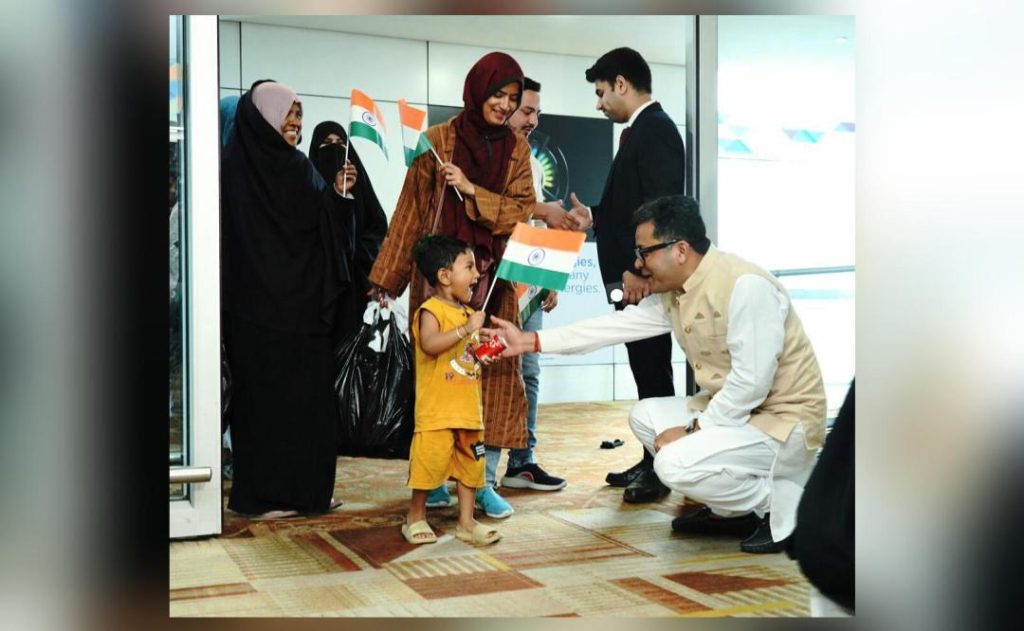
Indian Govt Evacuates Indian, Sri Lankan, and Nepalese Nationals from Iran
In the midst of the ongoing conflict in Iran, the Indian government has taken a proactive step to evacuate its citizens, as well as nationals from neighboring countries, from the war-torn nation. In a recent development, the Ministry of External Affairs (MEA) announced that 281 Indian nationals, 3 Sri Lankans, and 2 Nepalese nationals were evacuated from Iran and arrived in New Delhi on a special flight from Mashhad, a city in Iran.
According to an official statement made by MEA spokesperson Randhir Jaiswal, the evacuation was carried out as part of Operation Sindhu, which was launched to rescue Indian nationals stranded in Iran due to the conflict. Under this operation, a total of 2576 Indian nationals have been evacuated from Iran so far.
The evacuation process was carried out in collaboration with the Iranian authorities, who facilitated the transportation of the nationals from Mashhad to the Indian capital. The special flight, which carried the evacuees, landed at Indira Gandhi International Airport in New Delhi at 1500 hours on June 24.
The evacuation of Indian, Sri Lankan, and Nepalese nationals from Iran is a testament to the Indian government’s commitment to ensuring the safety and well-being of its citizens, as well as nationals from other countries, who are stranded in the conflict zone. The government has been working tirelessly to provide assistance to those affected by the conflict, including providing food, shelter, and medical care to those in need.
The conflict in Iran has been ongoing for several months, with the Iranian military engaged in a fierce battle with separatist groups, particularly in the western province of Khuzestan. The fighting has resulted in significant human suffering, with thousands of people displaced and many more injured or killed.
The Indian government’s evacuation efforts are a significant step towards ensuring the safety of its citizens and nationals from other countries, who are stranded in the conflict zone. The government has been working closely with the Iranian authorities to facilitate the evacuation process, and has also provided assistance to those affected by the conflict.
In addition to the evacuation of nationals from Iran, the Indian government has also provided assistance to those affected by the conflict, including providing food, shelter, and medical care to those in need. The government has also set up relief camps in various parts of the country to provide assistance to those who have been displaced by the conflict.
The evacuation of Indian, Sri Lankan, and Nepalese nationals from Iran is a significant achievement for the Indian government, and is a testament to its commitment to ensuring the safety and well-being of its citizens, as well as nationals from other countries. The government’s efforts to evacuate its citizens from the conflict zone demonstrate its willingness to go the extra mile to ensure their safety and well-being, and its commitment to providing assistance to those affected by the conflict.
In conclusion, the Indian government’s evacuation of Indian, Sri Lankan, and Nepalese nationals from Iran is a significant step towards ensuring the safety and well-being of its citizens, as well as nationals from other countries, who are stranded in the conflict zone. The government’s efforts to evacuate its citizens from the conflict zone demonstrate its commitment to ensuring their safety and well-being, and its willingness to provide assistance to those affected by the conflict.



